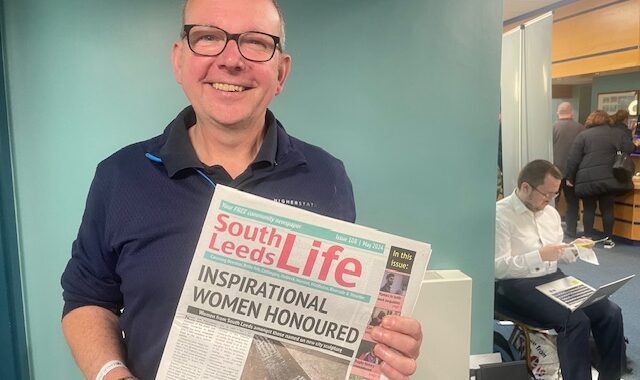Revealing the platform politics within community journalism: what do we mean by empowerment in the context of digital storytelling and hyperlocal websites?
There is no denying, people have been talking about the ways that the internet and mobile and social media devices allow us to produce and publish content in ways that were not possible even 10 years ago. The citizen can become a journalist, the community can become a newspaper, the journalist can go off the beaten track, research becomes data becomes storytelling then is distributed through existing mainstream channels. The media landscape is shifting, changing, merging and augmenting – causing a disruption in how we both make sense of the media we consume, but also gifting the possibility to create our own – and have our stories heard.
In my work, I look at the act of journalism and how it can be taught to anybody so that they can de-construct and re-construct their own narratives into how media is formed and how stories can be told digitally. Where communities becoming empowered to tell and mediate their own stories, rather than being mediated through alternative modes of existing mediums in a digital format – i.e. blogging sites that look like newspapers or magazines, community radio stations operating out of dedicated facilities or producing television style documentaries for distribution on YouTube.
How we see it, digital storytelling is a method that can be applied to varying degrees of personal social and political contexts, not just a citizen producing their own act or form of journalism. It can be a way in which the stories of individuals can be revealed and amplified whilst gaining access to emerging practice and skill development under the premise of growing digital literacy demands. It offers an alternative to ‘learning digitally’which is beyond form filling, bill paying or online shopping and it is a chance to critically reflect on the importance of storytelling within community settings whilst creatively selecting the right tool to do so.
Hyperlocal models of community journalism tend to require those participating to follow and adhere to a model of delivery that replicates existing forms of media infrastructure in a digital form. An example of this may be using the blogging/content management system WordPress to develop a website in a newspaper-like theme, that is then populated by stories relevant to a specific location, and often delivered by 1-2 keen and driven self-identified community leaders and/or a team of volunteers.
The hyperlocal blog is a service based approach, an attempt to use emerging digital tools and affordable methods of publication as a way of rebooting local news into communities that may have lost access to previous forms of information. The merit is in the economic factors for production and delivery – on the offset, digital is ‘cheaper’than paper in order to develop a publication – but does not take into consideration the human resourcing required in order to source, develop, write, report and promote that content in the first place. Therefore, it could be argued that some forms of hyperlocal operation reflects the principles of the current UK government’s big society model for community development – where keen volunteers will replace paid staff as a method of achieving the same service without a concrete funding model in place, relying on the principle that the community will love the hyperlocal blog so much that they were contribute to it for free – thus developing a thriving journalism site, produced ‘for the community, by the community.’
It is a nice idea in principle, and does work successfully in many contexts, however to apply this model uncritically would leave me feeling uneasy. For instance, the socio-economic background of those participating need to be considered if we are seriously consider this as a default model of rolling out recommendations of emerging forms of community journalism. Often those who set up or contribute to a hyperlocal blog may already have a background in journalism, academia, digital media or communications more generally and can contribute effectively to the publication within their ‘space time’and around existing commitments. They possess platform and network literacies and knowledge of media production to make critical decisions of how and why they participate. It is nice to be able to write something about your community, publish it and not be too restricted by other expectations such as an appeasing an employer or working for a client – but a hyperlocal’s accountability to ethical or the notion that this is an empowering form community journalism requires similar principles and governing documents that would exist in a newsroom or existing media platform. The editorial of the hyperlocal is governed by those who produce it – and if those who produce it have an existing grasp of media production and governance, we need to be aware of what that is and how it may affect the ways in which other voices from that community are heard (or not heard.)
Unlike commercial journalism, the hyperlocal blog can set its own parameters as to what is acceptable coverage on its blog, its accountability is governed by those who participate with in it, so it is worth being careful when making vast claims of community empowerment when it is not entirely transparent who is behind the hyperlocal itself. Volunteers may receive training in return for their participation in the blog – which may lead to further opportunity – but realistically, there is no obligation to publish content that the volunteers produce, nor is there obligation for people to volunteer in the first place. What is the trade of for participation – is it social or monetary capital? is it a form of health or wellbeing? is it an opportunity to learn new skills or gain employment or access to education? In this case, many hyperlocal blogs tend to be ran by one or two people who attempt to find a way to monetise their efforts so what may have started as a ‘hobby’project can draw its own income, mainly through advertising and associated projects.
When we think about sustainability and allowing these sites to become self-financing and self-governing, this should also include reflections on keeping the community engaged both as readers of the content, but also through participation from a community development perspective. Producing media is political, it is not just a commodity to be bought, sold and provided as an uncritical service. There is fantastic opportunity to use forms of media making as a development and learning tool, that can often align with instances of political education, digital citizenship and wider community participation – but there needs to be clarity on the role of the site. If producing local news to a house style and editorial is the aim, and the site begins making money through forms of advertising – don’t be surprised if your volunteers drop off. They need to feel like they can own the site, and community learning and development is as (if not MORE) important than simply producing blog posts that look like local journalism used to look on paper. Do not take this level of community participation for granted.
One way to ensure that the community blog can include a array of voices and opinions is to ensure there are multiple avenues to access, share and contribute content – not just replication of journalism style on a blogging platform, but perhaps multimedia forms such as audio recordings, videos, photographs – and showing people how they can access this on their own devices, be it a smart phone or a smart TV, and how they can pass this on to members of their family or social network in a way that it suits them.
Similarly, it doesn’t always have to look like journalism, journalism as we know it today is a constructed form but the essence of research skills, investigative enquiry, ethical use of sources and telling stories are transferable skills than allow for those participating to be creative in their expression of their story – it might not look like a digital version of a newspaper, but believe me, being able to produce rather consume content on your existing devices can be empowering for somebody who thought the only way to have their story heard was to write to a local newspaper and engage in debate through a publishing gatekeeper. Social media and digital storytelling allows the discussion to not only come into existence but the conversation to carry on.
In some ways, it could be argued that those who run and manage hyper-locals could be in danger of being the same form of gatekeepers when it comes to providing an editorial – we must be careful that we don’t ring-fence this form of community journalism, deciding what is considered acceptable content for the hyperlocal and throwing away the rest. What if that ‘rest’is the emerging evidence of that person contributing their first steps into participating digitally, it might not bring in the site hits, YouTube views and Facebook likes – but it brings that person’s story into existence. They experience mediation, they learn how to communicate digitally and can begin to make critical decisions wherever to participate or not. And most importantly, it is told by them, not on behalf of them. There is a staggering difference.
So my suggestion?
Teach the world to see how media is constructed. Deconstruct it, reconstruct it, ask questions of the process and who is underneath and above and beyond those narratives. Don’t get hung up in replication the forms of familiar journalism rhetoric and technique or even expect those volunteering to adhere to your specific house style, if your desire is to support the development of a hyperlocal site that reflects the voices of the community, co-produce the mediation of events together. Take from journalism the need to be critical of what you are being exposed to, how to develop and ask the right questions, and to capture that investigation in the best way possible – make sure the sound is clear, the image is the right way up and your style suits the platform you are presenting within.
I’m interested in helping people start fires and develop the expectation that they should benefit in someway for doing so – be it confidence in using tools they have already to do something better, become more critical of what they are being told by the media and importantly feel that no story is too small, too irrelevant to be told.
Focus on equipping and supporting people to find the tools and approach so they can speak on behalf of themselves, rather than only let media outlets, even with all good intentions in the world, do it for them. It is then possible to make a critical decision about their decision to participate, much like the practicing journalist who volunteers their time to a hyperlocal blog that allows them to write without pressure but ultimately makes an informed decision about how their labour is being used.
Similarly, it is about notions of content ownership, a gatekeeper can make a decision whether to publish a piece of work on the site that they govern, however, the creator can still self-publish regardless if the gatekeeper choses to use the the post. The main requirement here would be confidence, confidence to know that their position and story matters – and operating and articulating ‘in public’can often feel a daunting task, regardless of how supposively easy it is to do now using social media.
There is transparency in the purpose of why people may sign up to participate in a community blog, what is the trade of, what are the perimeters and are they able to co-produce the governing outline of the website they are participating within – if one person, with the additional knowledge of how news sites work is deciding the editorial approach of the outlet, how is this being communicated to the volunteers and the public more broadly – how can we ensure that we move beyond simply replicating ‘cheaper’big society ways of delivering the craft of journalism to increasingly localised communities and instead work towards using community journalism as a form of community development, media & digital literacies and a broader political education?
Author: Jennifer M Jones, Digital Commonwealth Project Coordinator & Researcher. University of the West of Scotland. Jennifer is currently the project coordinator for the Big Lottery Funded Glasgow 2014 Legacy project “Digital Commonwealth”and is based at the University of the west of Scotland. She is a part-time researcher, completing a PhD on major events and social media with a focus on citizen journalism as a device for community empowerment and how digital tools are used in an events and cultural context. She is a digital media practitioner who has delivered digital materials, training and resource support for a number of third sector and cultural organisations including the Big Lottery Fund, SCVO, British Council, Carnegie Trust, CILIPS, Robert Burns World Federation, Renfrewshire Council and a number of Universities around the UK.
http://www.digitalcommonwealth.co.uk
Image accompanying this article on the front page of the website is copyright Sam Javanrouh.




